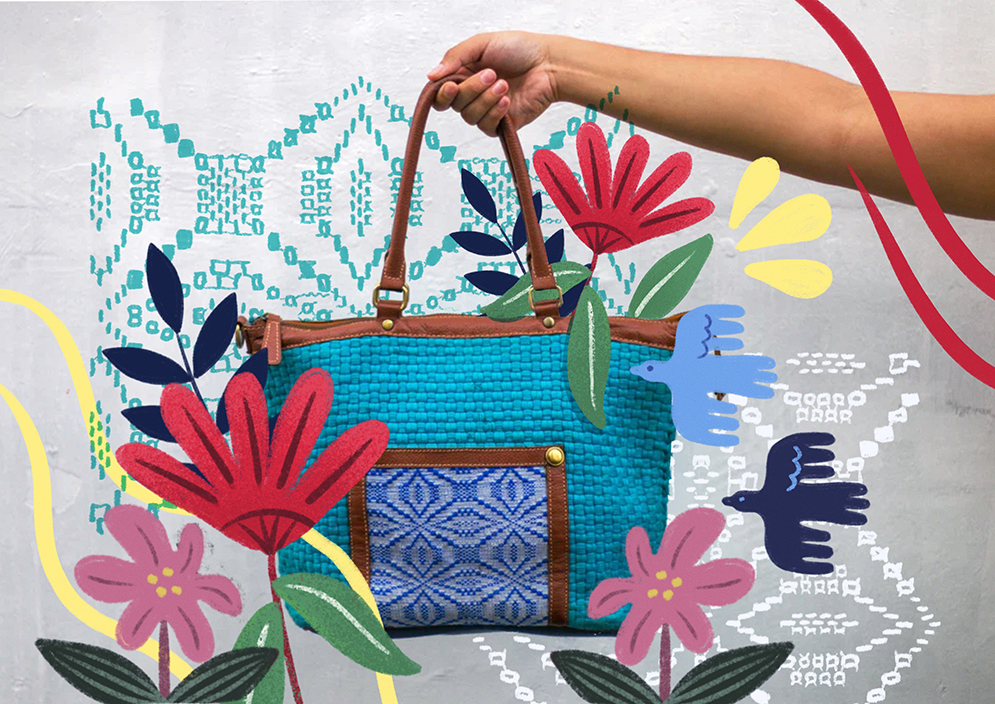
Reese Fernandez-Ruiz: Sustainable business for sustainable futures
by KD Suarez
R2R president and co-founder Reese Fernandez-Ruiz (BS Mgt 2007) is all smiles as she talks about their recent collaboration with HYBE Corporation, teaming up with the South Korean entertainment giant to create special merchandise for the K-pop megastar group BTS.
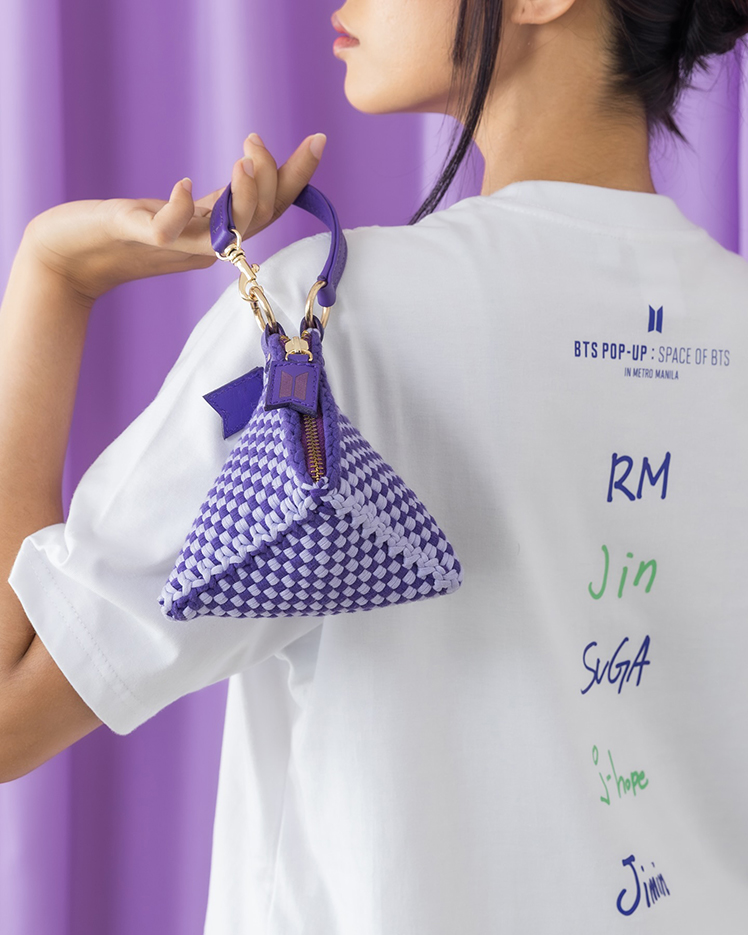
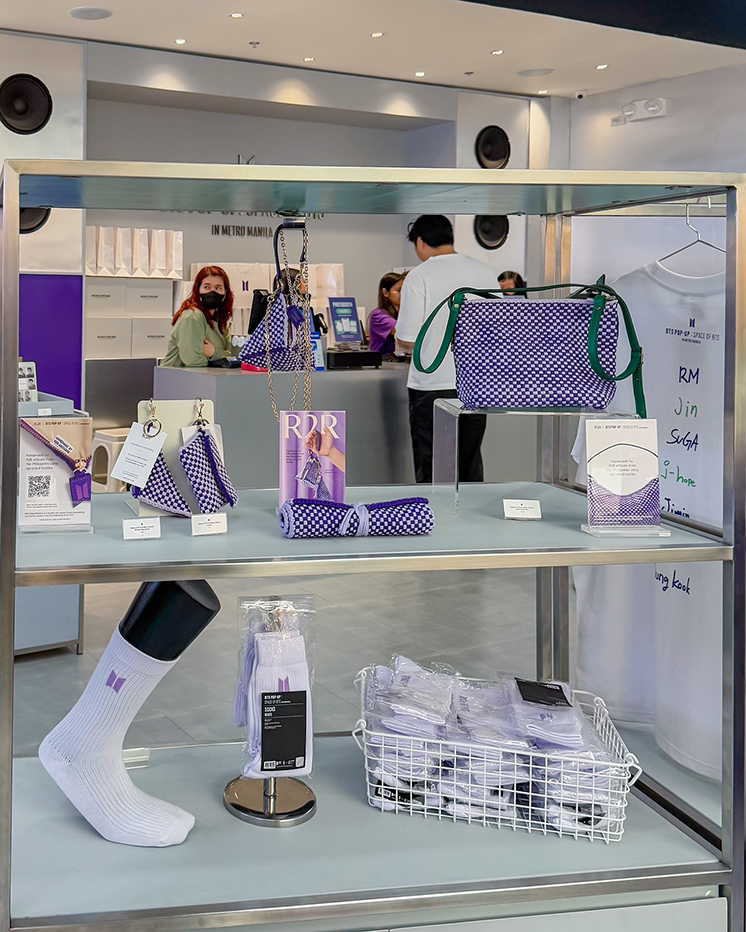
HYBE’s local partner APOP Collections was looking for local brands that could create exclusive Philippine BTS-branded merch for the “BTS Pop-up: Space of BTS,” which ran at the SM Mall of Asia during the 2024 holiday season.
"We are one of the ones that passed the initial screening then we created the products," Reese recounts, saying that it was "unexpected." Never in their wildest dreams did Reese and her team at R2R ever imagine that their business would be partnering with arguably the world's most popular K-pop group.
The BTS merchandise collaboration joins the list of projects the fashion company has with top brands and companies, a testament to the reputation of R2R as a brand that has successfully balanced doing business with doing good.
For the past 17 years, the company has built a reputation for creating top-quality, Filipino-inspired designs of fashion items from bags to clothes, crafted by specially-trained artisans and using sustainably sourced materials. For Reese, the business became a real-life bootcamp for her, especially since she did not have a true business and design background.
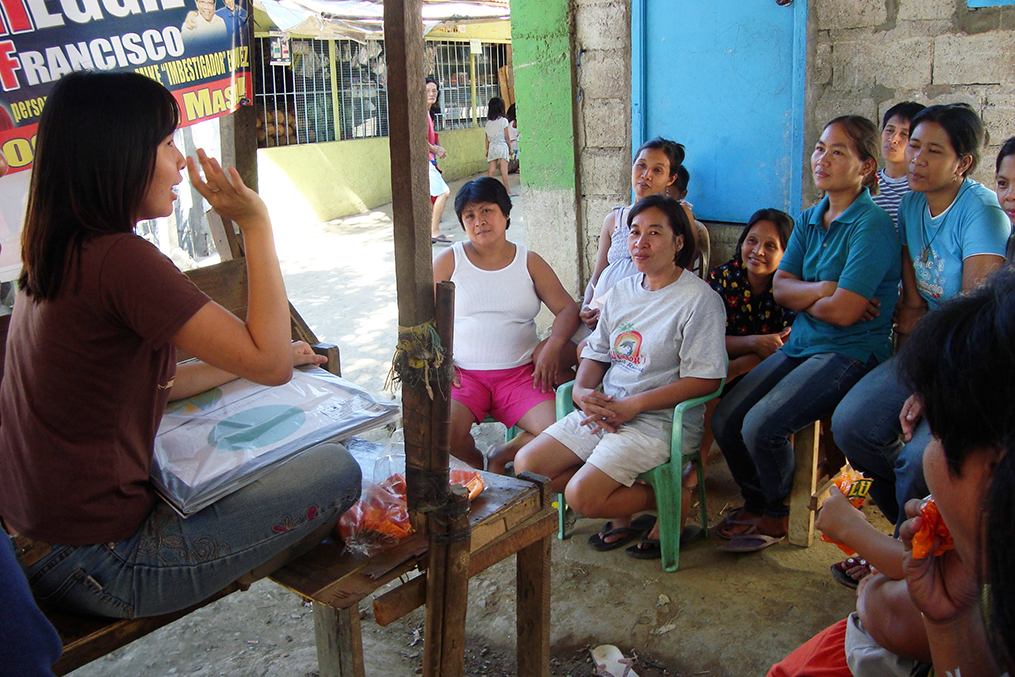
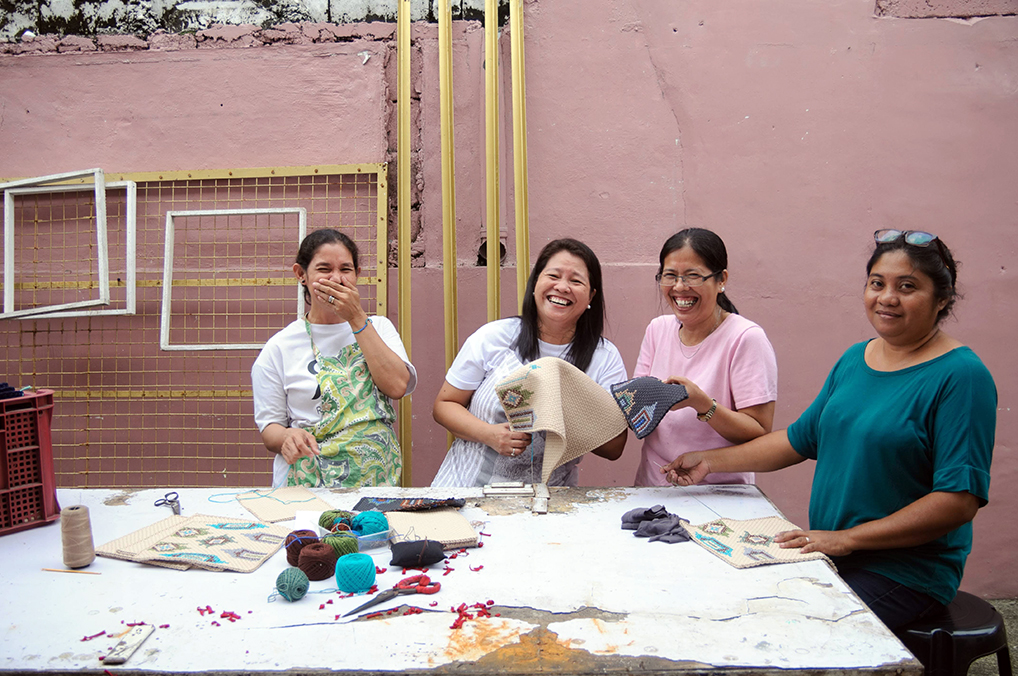
“Aside from not having a business background other than my course, I also didn't have any design background,” she says. “I had an insecurity about my ability to be able to build a fashion company.”
R2R became a sort of on-the-job training for her, she says. She owes a lot to her co-founders as well as to the network of businesses, communities, and designers they have worked with. “It was my formative years when it comes to design and fashion because I wasn’t really exposed to it when I was young.”
Sustainable products, sustainable business
At the core of R2R’s business has always been creating a positive, sustainable impact on the artisans and their communities, Reese explained – even when the term “sustainability” wasn’t yet in fashion. But this, she says, led to her questioning if the business will last. “All I had in mind was impact.”
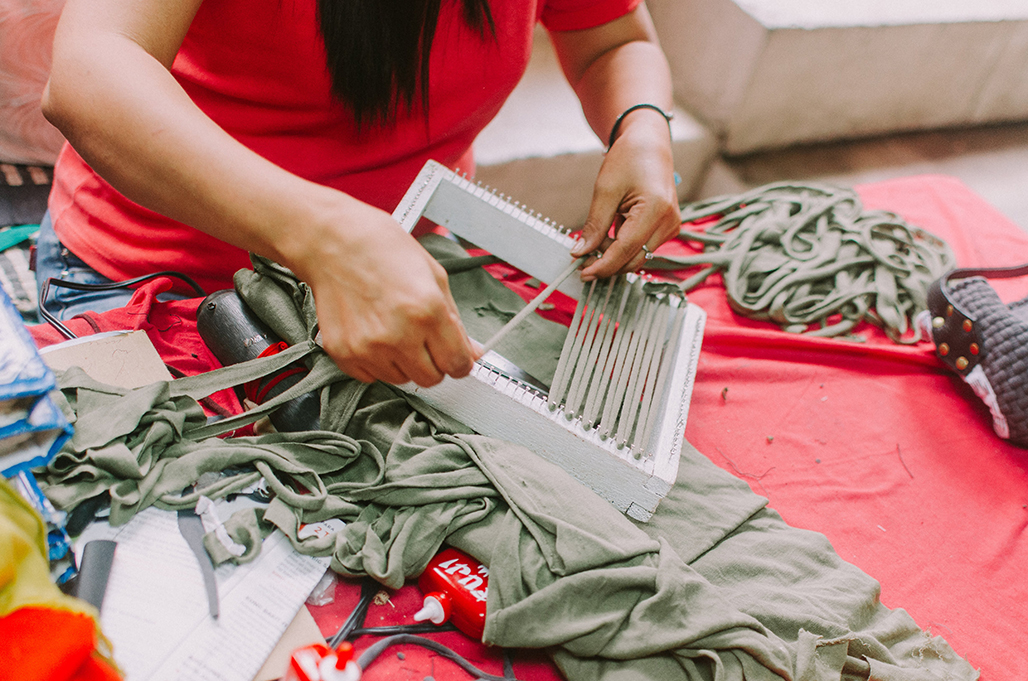
However, she realized that to make an impact, the business itself should be sustainable. “I realized eventually that the impact will vanish if the business disappears, so it has to come together.”
At first, it was difficult for her to reconcile the two. “For a social entrepreneur like myself, profit, even if I say ‘profit for purpose,’ was such a bad word,” Reese says. “But I realized that it shouldn’t be the case; what you avoid will definitely avoid you also. So if you avoid ‘profit’ it's most likely not going to happen because you’re not focusing your efforts on that.”
It took some difficult times for R2R to change her mind about profit and business numbers. “I really wanted to give it a shot because of the artisans who depend on it and have become their life’s work,” she says. “I really want to make sure that we can build this company and make it sustainable” for both herself and the company’s employees.
“It’s good if [your business has] a good cause, people will love that – but they will love that maybe once every three years,” Reese says. “But if they need a reliable supplier or business partner, they will hardly look our way if we’re not properly run, and we have to put something on the table.”
“By virtue of being a business, we're able to do what we do, which is to provide sustainable livelihood for artisans,” which, she says, is the very core of R2R. “The way we do business is just intrinsically connected to the cause that we are doing”
‘Four year recollection’
Doing things for a deeper purpose is something Reese says she learned in Ateneo. She calls her college years her “four year recollection,” saying that she entered the University with a “very different view of the world,” coming from a troubled childhood that forced her to be “parentified” early.
Coming to Ateneo helped her sort out a lot of her issues from childhood, by helping her make connections between things. “I was able to make the connections in some ways, through my philosophy and theology [classes and] org work about things that didn't make sense,” she says. “What can I make out of them? It's always looking for the deeper meaning, the purpose” of things, she says.
It was also in Ateneo where she made a lot of meaningful relationships that have helped her grow through the years – and those connections, she says, were made when she was “just trying to help.”
One such connection was made during a four-hour bus trip from a Gawad Kalinga build in Gabaldon, Nueva Ecija, when she serendipitously sat beside then-University President, Fr. Ben Nebres SJ.
She recounts that she was “so nervous” to sit beside the head of the University for the long trip back to Loyola Heights. “He was very inquisitive and curious and learned many things from him, but what made an impression on me was that he talked to me,” she says. “I was a third year college student. I had no connections, nothing. As a scholar. I just wanted to volunteer.”
That fateful bus ride led to Fr Ben becoming her mentor and close friend, and one of R2R’s loyal supporters. “Even when R2R was going through a difficult time… he was always there, he stuck by us.”
Reese also recounts the kindness of Jesuit brothers who, at a time when she was visibly distressed, took time out from a party and talked to her. “A few brothers came to the reception area with me, and gave me food and talked to me. I can’t even remember their names,” she says. “I felt so welcome and not judged and that really made an impression on me.”
Living with good intentions
Those were just some of the times Reese says Ateneo has helped her grow into the person she is now. These connections, she says, showed her that how people treat others do have a snowball effect .
“You’ll never know when something you said or did will affect someone in a positive or negative way,” she says. “If that’s the case, then might as well live your life with intention - like, when I say this I’m hoping that it’s going to come out… as a good thing for someone somewhere down the line.”
This mindset is what carries Reese’s work forward – intentionally growing a business not just to sell products, but to help more people work their way out of poverty.
So far, R2R has helped more than 1,000 artisans across 16 communities across the country. One measure of success for the business, she says, is the significant number of artisans with active accounts in their savings program, in partnership with CARD Bank.

“[An] active passbook means money coming in and out, not just stagnant or money just dries up. For us that’s an indicator or surplus, because if you have savings, you have money to plan for things ahead,” she explains. “If you have savings, you can now start planning for the future. And for us that is one big indicator of being able to slowly get out of poverty.”
Reese also believes that working for R2R should be a “step up, not necessarily a destination” for many people. This means that the livelihood component – creating the products – is designed so that the artisans and their families will eventually have better choices in life.
“Many of them do this because they don’t have a lot of options, so we just opened up one option… one that is designed for them, one that is fair,” she says. “For us, we hope that their children will have more opportunities when they grow up – that they can choose what work or career to take.”
Barely scratching the surface
Lately, she says there has been a shift on how people view artisan-made products. Before, she says, people expected artisan or upcycled products to be sold cheaply. “When we say artisanal and it's made well and it's beautiful, appreciate its value and pay for that value because somebody else's life will improve because of that – literally, lives of people, not just shareholder value.”
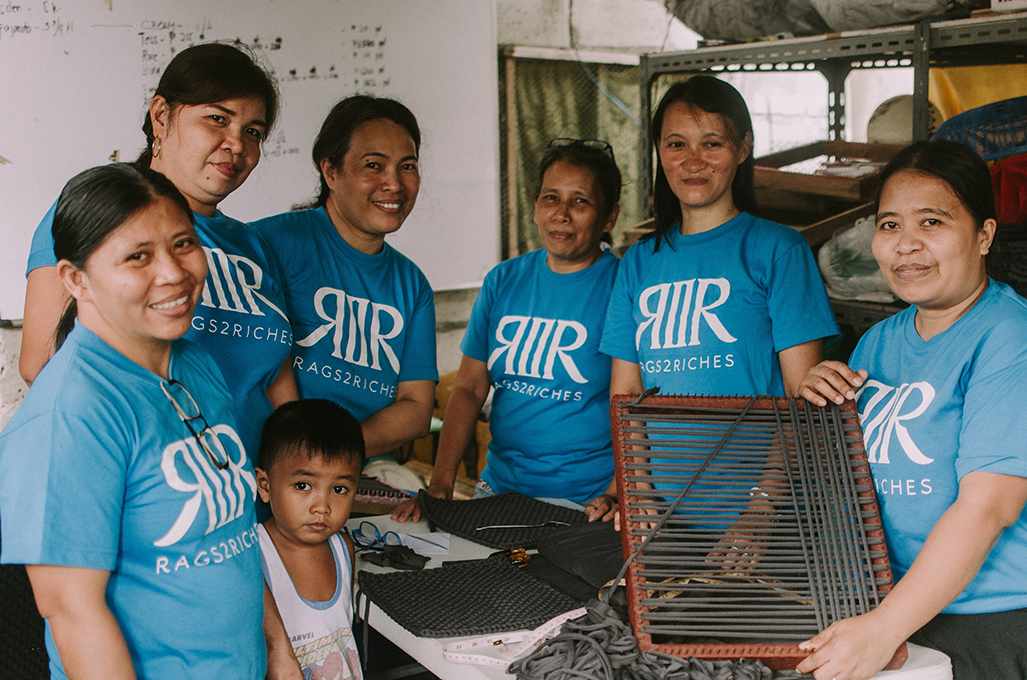
“I think we're finding our balance that our products are affordable so that more people can buy, but then it really needs to have high value also because it is not made by a machine – It's made by a human being over a long time, so [we need to] give value to that,” she says.
As for R2R, she says the company is planning to grow to create more opportunities for artisans to create more products, not just clothes and bags. ‘We are [currently just] one option for the artisans. But how about if there were more options for them – not all of them are into fashion, not all of them can sew. They should also have other options,” she says. “By creating more brands, we open more doors and sustainability is still at its core.”
“I say I think we have barely scratched the surface of the potential of R2R. I think we still have a long, long way to go.”
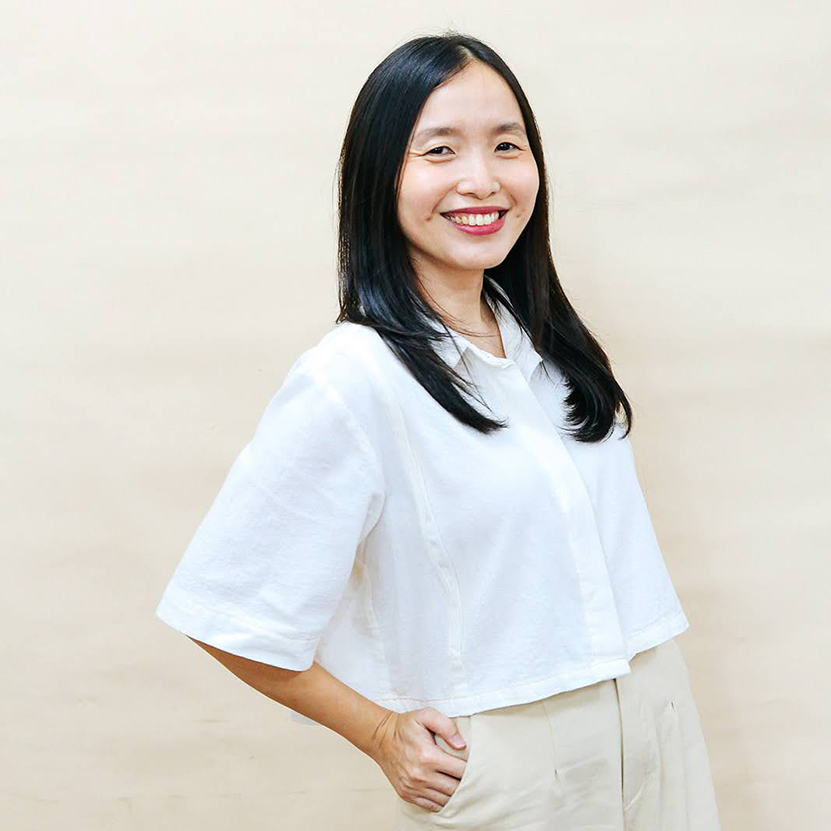
Photos courtesy Reese Fernandez-Ruiz/R2R

Published by the
Office of University Development and Alumni Affairs
Ateneo de Manila University
Fr Norberto "Kit" Bautista SJ
Publisher
Rica Bolipata-Santos PhD
Editor-in-Chief
KD Suarez
Editor
Margarita Santos
Franchette Mary Therese Silva
Renée Nuevo
Contributors
Andrea Bautista
Art Director/Graphic Designer
Ateneo alumni can update their information by emailing OUDAA at
alumnirelations@ateneo.edu
Contributions
fabilioh@ateneo.edu
Facebook
facebook.com/AteneoOAR
